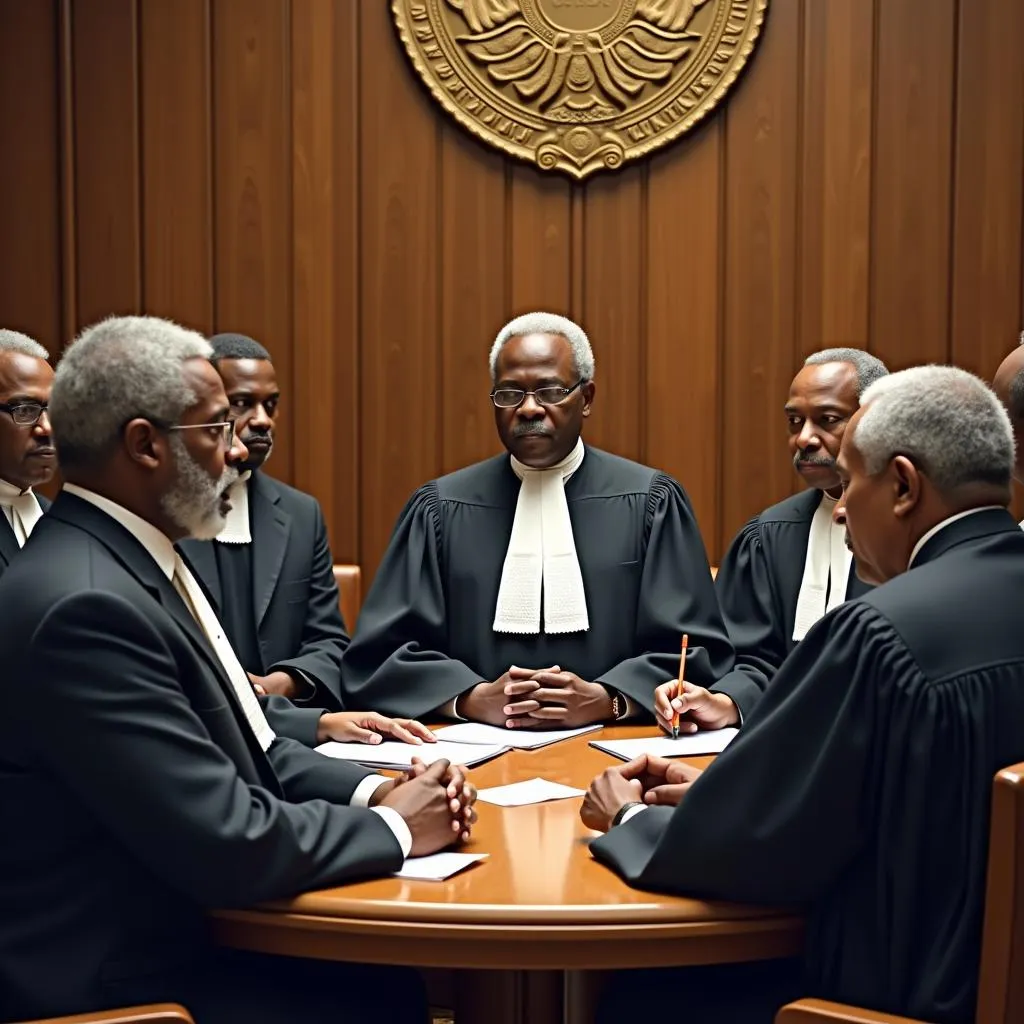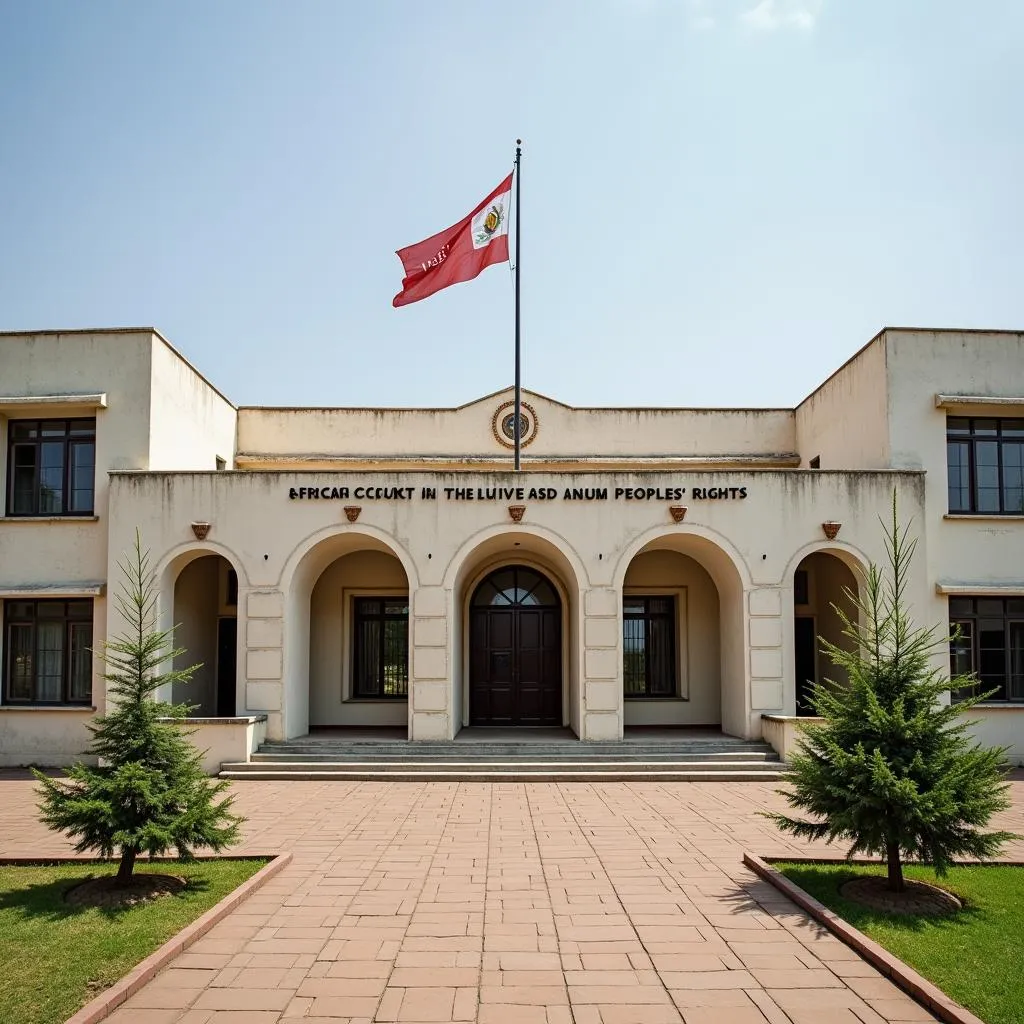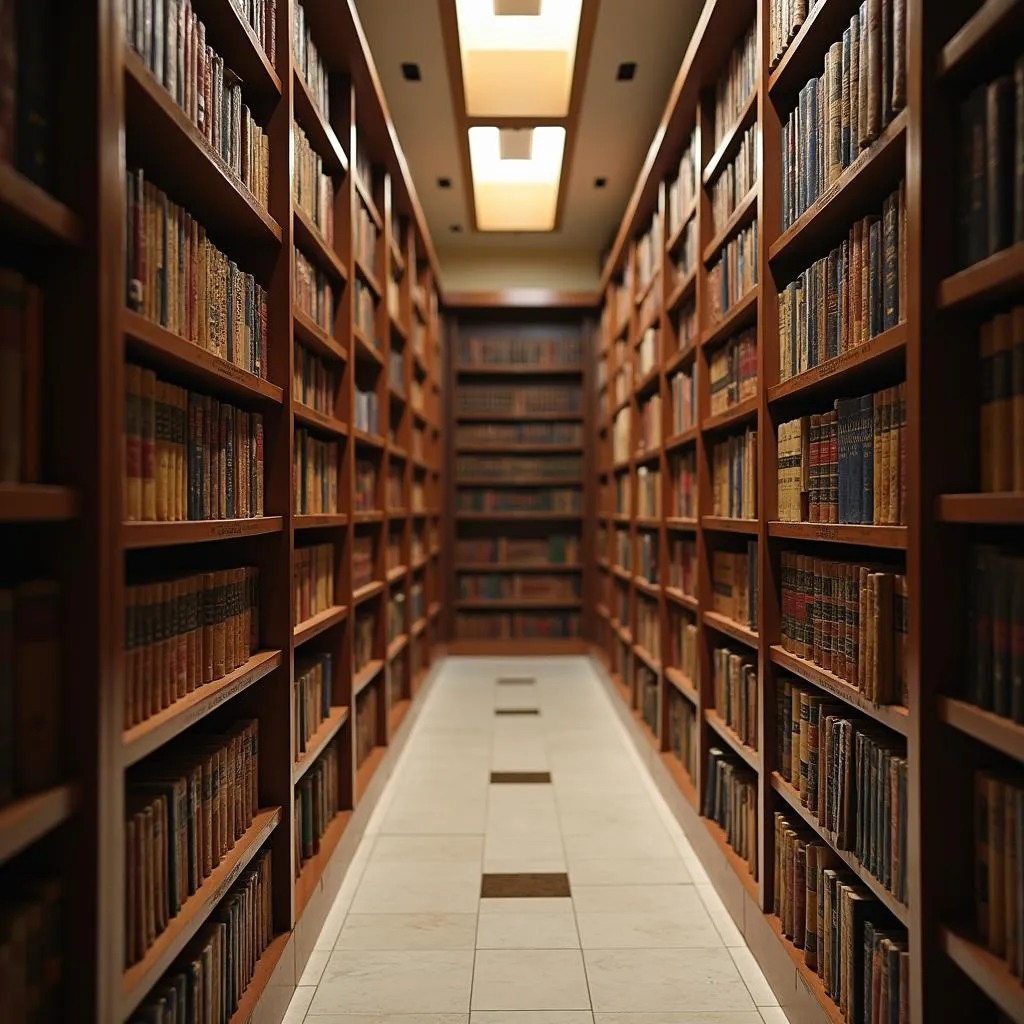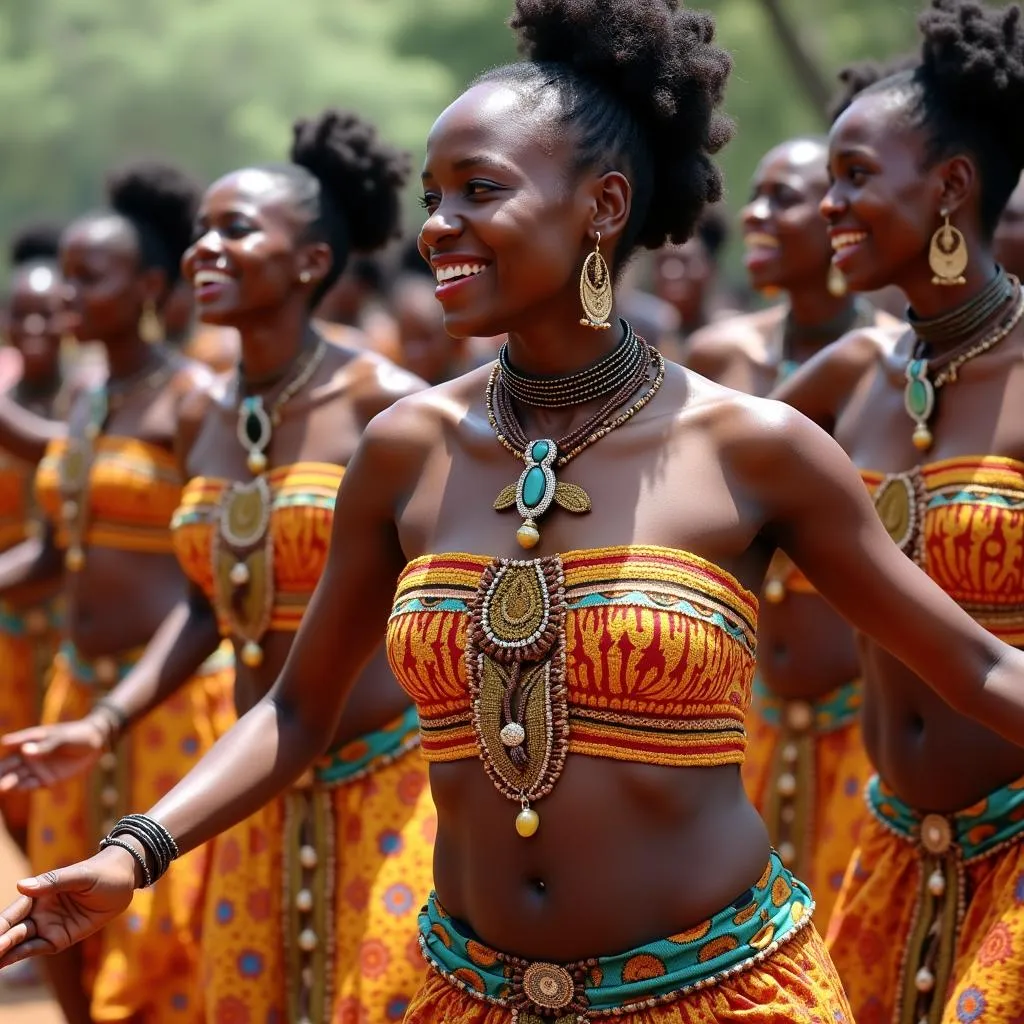The African Court on Human and Peoples’ Rights: A Champion of Justice and Dignity
The African Court on Human and Peoples’ Rights is a unique institution dedicated to promoting and protecting human rights across the African continent. Established in 2004 and based in Arusha, Tanzania, the Court plays a crucial role in upholding fundamental human rights principles and ensuring accountability for violations.
A Court with a Mission: Promoting Human Rights and Ensuring Justice
The African Court on Human and Peoples’ Rights is a judicial body that derives its mandate from the African Charter on Human and Peoples’ Rights. Its primary goal is to ensure the effective implementation of the Charter and guarantee the protection of human rights for all individuals in Africa. The Court’s jurisdiction extends to interpreting and applying the Charter, resolving disputes related to its provisions, and adjudicating cases involving alleged violations of human rights by states.
The Court’s Jurisdiction: A Comprehensive Approach to Human Rights
The African Court has jurisdiction over a wide range of human rights issues, including:
- Civil and political rights: This category encompasses rights such as the right to life, liberty, and security of person; freedom from torture and inhuman treatment; freedom of expression and assembly; and the right to a fair trial.
- Economic, social, and cultural rights: These rights are essential for the well-being and development of individuals and communities. They include the right to work, education, health, adequate living conditions, and cultural participation.
- Collective rights: The African Court also recognizes and protects the rights of groups, including indigenous peoples, minorities, and refugees. This includes the right to self-determination, cultural preservation, and non-discrimination.
The Court’s Impact: Advancing Human Rights in Africa
The African Court has made significant contributions to the advancement of human rights in Africa through its rulings and jurisprudence. These include:
- Holding states accountable for human rights violations: The Court has issued landmark rulings against states for human rights abuses, sending a clear message that states are accountable for their actions.
- Promoting the rule of law and democratic governance: The Court’s jurisprudence has strengthened the rule of law in Africa by upholding fundamental principles of justice and fairness.
- Empowering individuals and communities to seek redress for human rights violations: The Court provides a platform for individuals and communities to seek justice and accountability for human rights abuses.
 African Court Judges Meeting
African Court Judges Meeting
How the Court Operates: Ensuring a Fair and Just Process
The African Court operates in a manner that ensures a fair and just process for all parties involved. It adheres to principles of due process, independence, impartiality, and transparency.
Here’s a glimpse into the court’s procedures:
- Access to justice: Individuals, groups, and NGOs can petition the Court for redress of human rights violations.
- Adversarial proceedings: Cases are heard by a panel of judges, who apply the relevant provisions of the African Charter and international human rights law.
- Independent and impartial judgment: The Court’s judgments are based on evidence and legal principles, free from political interference.
- Enforcement of decisions: While the Court relies on states to implement its decisions, it can also request the African Union to take action to ensure compliance.
The Future of the African Court: A Promising Path for Human Rights in Africa
The African Court is an important institution for promoting and protecting human rights in Africa. Its ongoing work contributes to the development of a more just and equitable continent. To strengthen its impact, the Court faces several challenges, including:
- Increasing its visibility and accessibility: Raising awareness about the Court and its work is crucial to empower individuals and communities to access its services.
- Strengthening its enforcement mechanisms: Ensuring states comply with its decisions is crucial for the effectiveness of the Court.
- Expanding its jurisdiction: The Court’s jurisdiction could be broadened to include other areas of human rights law, such as environmental rights and economic and social rights.
 African Court Building
African Court Building
“The African Court on Human and Peoples’ Rights is a powerful symbol of Africa’s commitment to upholding human rights,” says Professor Aisha Umar, a renowned human rights scholar and expert on the African Court. “It is a testament to the continent’s determination to build a more just and equitable society for all.”
Frequently Asked Questions (FAQs)
-
Q: How can I contact the African Court?
A: You can find the Court’s contact information on their official website, african human rights law journal 2018. -
Q: Can individuals file cases directly with the Court?
A: Yes, individuals, groups, and NGOs can file cases directly with the African Court, provided they meet the admissibility criteria outlined in the Protocol establishing the Court. -
Q: Does the Court have the authority to enforce its decisions?
A: While the Court’s decisions are binding, the primary responsibility for enforcement lies with states. However, the Court can request the African Union to take measures to ensure compliance. -
Q: What are some of the challenges the Court faces in fulfilling its mandate?
A: Some key challenges include increasing its visibility and accessibility, strengthening enforcement mechanisms, and expanding its jurisdiction. -
Q: What are some examples of cases the African Court has decided on?
A: The African Court has adjudicated cases on a range of issues, including political rights, economic rights, and the rights of minorities.
 African Court Law Books Library
African Court Law Books Library
The African Court on Human and Peoples’ Rights represents a beacon of hope for a more just and equitable Africa. By promoting human rights and ensuring accountability, the Court plays a vital role in shaping a future where all individuals enjoy their fundamental rights and freedoms.
